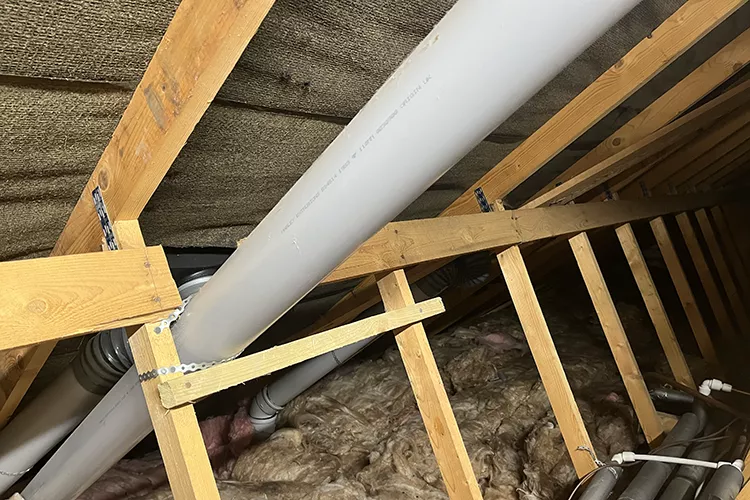
Volunteer Midlothian’s Volunteer Recruitment Fair returned successfully on Thursday February 29th, with an impressive turnout of over 125 attendees dropping into St John’s & Kings Park Church to learn more about volunteering.
In light of recent trends indicating a decline in volunteering rates, as highlighted by a 2022 survey revealing a dip below 1 million volunteers in Scotland for the first time in 15 years, Volunteer Midlothian remains steadfast in their commitment to promote and support volunteering in Midlothian.
The annual Volunteer Recruitment Fair serves as a vital platform for organisations to come together, advertise their volunteer opportunities, and engage directly with the local community.
Volunteer Midlothian told Midlothian View:
“This year’s Volunteer Recruitment Fair was a great success, with attendees eagerly signing up to lend their time and skills to various causes across Midlothian and further afield.
“Adding to the festivities, previous Midlothian Volunteer Awards mascots made a surprise appearance and helped remind everyone of the upcoming Volunteers’ Week in June. Volunteer Midlothian’s Chief Officer, Lesley Kelly, announced the opening of nominations for the 2024 Awards. The nominations close on March 22nd, so be sure to submit the online nomination form as soon as possible if you want to nominate a volunteer who’s really made an impact in Midlothian.
“We’d like to extend our appreciation to everyone who made this year’s Volunteer Recruitment Fair one to remember.
“Special appreciation goes to Black Diamond FM for providing background music and conducting insightful interviews, which will soon be available on their website and on Volunteer Midlothian’s website.
“Thank you to Midlothian Provost and Volunteer Champion, Debbi McCall, who gave an uplifting speech that encouraged everyone to start their volunteering journey.
“Thank you to the Lord Lieutenant, Vice Lord Lieutenant, and Deputy Lord Lieutenant for coming along to support us, and staying to chat to everybody.”
“A big thank you to MAEDT, who provided delicious homemade soup and refreshments throughout the day.
Of course, the day would not have happened without the commitment from all the organisations that showed up excited to promote their volunteering opportunities.
Volunteering Matters
NHS Lothian
Glencorse Centre
Equal Futures
Midlothian Breastfeeding Alliance
Newtongrange Development Trust
Girlguiding Midlothian
Penicuik Storehouse
Health In Mind
Forth Rivers Trust
Citizens Advice Bureau
Alzheimer Scotland
Central Dalkeith & Woodburn Pantry
Midlothian CLLE
Gorebridge Development Trust
HCL Transport
LCTS
Ageing Well
VoiceAbility
Mavisbank Trust
Volunteer Midlothian
Missed out? Don’t worry! Volunteer Midlothian holds weekly Volunteer Drop-Ins every Tuesday from 10:00 – 13:00 and every Thursday from 12:30 – 15:00 at The Salon in Dalkeith. These are open to anyone interested in volunteering, especially if you don’t know where to start.

Co-op reveals death disconnect: 2.2M Scots unable to talk about funeral wishes despite nearly a million thinking about death weekly
Over a fifth (21%) of Scots think about their own death as regularly as once a week, and over half are doing so monthly, according to new research launched by Co-op today.
In spite of this, 2.2 million Scots are at risk of not having their affairs in order when they die, due to a reluctance in discussing their own funeral wishes with their loved ones.
The study forms the basis of Co-op’s state of the nation Planning for Death report – backed by YouGov – based on the views of over 16,000 UK adults and 18,000 Co-op member owners and is an-depth investigation into the nation’s attitudes towards death, dying, bereavement and later life planning.
Co-op, which is owned by its 5 million members, is encouraging greater comfort and openness in talking to loved ones about funeral wishes and death, gathering the thoughts and attitudes towards death of over 60,000 people across the UK, including 24,000 Co-op member owners, since 2018.
Despite death being top of mind for many, less than half (49%) of people in Scotland have openly talked about their funeral wishes with loved ones. Co-op’s report also reveals that just over a third (35%) said they are comfortable with and have talked to loved ones about their own death, while over a tenth (12%) said they were not comfortable and would not discuss it at all.
Co-op is encouraging the nation to talk to loved ones about their funeral wishes to avoid the emotional burden of not knowing how their loved one would want to be remembered. The research reveals the disconnect between talking about death and ensuring loved ones’ wishes are fulfilled when the times comes, as making sure all requests of the deceased are fulfilled is the number one priority for almost two fifths (39%) of people in Scotland, ahead of funeral costs (32%) and who attends the funeral service (23%).
Research from Co-op’s Planning for Death report indicates that for many, reaching a significant milestone in life can prompt thoughts about their funeral wishes and later life planning. For example, 41% of Scots took out life insurance after buying a house. However, the frequency of such milestones – such as people buying houses and having children – are happening later in life amongst certain demographics, leading to a potential gap in important planning conversations across UK households.
This gap is further compounded by life expectancy falling nationally to the lowest levels in a decade, and state retirement age likely to increase in the coming years. While data from Co-op Funeralcare shows the average age at which a person takes out a funeral plan to be 73 years old, which has risen by over 10 years since 2021, when the average age was just over 62 years old.
These factors together are contributing to a shorter window for people planning ahead for death, and, alongside the potential emotional impact this could have on loved ones, family finances are also more exposed to sudden shocks and last wishes potentially unfulfilled.
Despite half (50%) of people in Scotland having thoughts about their own mortality before the age of 20, fewer than half (49%) have discussed their funeral wishes with those close to them. Alarmingly, 75% said they haven’t made a will, with half (51%) saying this is because ‘they haven’t got round to it yet’.
Similarly, four fifths (77%) don’t have life insurance, with over a quarter (28%) saying they don’t need it. And when we consider that almost half (48%) of those who had lost someone in the last five years said it was ‘sudden’, loved ones could be left to face a huge financial burden during an already difficult time.
Gill Stewart, Managing Director of Co-op Funeralcare, said: “The findings of our research, taken from across the UK, and including the experiences of our Co-op member owners, reveals the variety of triggers that can spark thoughts about mortality, from personal experiences, milestone moments to global events played out in the news.
“Despite this, our findings highlight a real missing link between thinking, talking and even planning. It can be uncomfortable to discuss planning for death and funerals with loved ones, especially for fear of upsetting them – but we believe this is precisely why those conversations are crucial.
“We know that talking to loved ones now can help them later. Putting in place funeral plans, life insurance, a will or even a Lasting Power of Attorney, can go a long way in safeguarding loved ones when the time comes.
“That’s why really we encourage people to have open and honest conversations about their wishes with loved ones.”

This View has been written by Brett Ferguson, a Chartered Surveyor in the Perth office of DM Hall Chartered Surveyors.
It is hardly surprising in a climate in which homeowners are continually being advised about the urgency of taking green measures in their properties that insulation should be high up on their list of priorities.
And the arguments for taking sensible steps are difficult to ignore. More than 50% of all energy produced by humanity is lost as heat and by reducing the amount of waste heat going into the environment, we can save money and improve sustainability.
But there are ways of making improvements, and one of the most promoted at the moment – especially as we suffer another miserable winter – is spray foam insulation for roofs.
A quick Google or Facebook search will throw up countless companies offering this method as a quick and easy solution to heat loss in the home. Many others try to attract customers by the dubious methods of cold calling.
The simple advice for homeowners if they find themselves considering spray foam insulation as the answer to their energy efficiency problems: Don’t.
Installing spray foam within a property’s roof void significantly reduces airflow in and out, trapping moisture and increasing the risk of condensation. Most roofs in Scotland are constructed with timber. Timber and elevated moisture levels will lead to decay over a period of time.
This poses a risk to the structural integrity of the roof, considerably reducing the life expectancy of the roof structure. Furthermore, the presence of spray foam conceals the roof timbers from view, meaning such defects could go un-noticed before the extent of the problem is realised leading to costly remedial repair works.
It is an unregulated field with installers either not aware of the consequences of such products or they are out on what can only be described as a ‘get rich quick scheme’, charging thousands of pounds to install these products which they will have no obligation to rectify at a later date, if, that is, they can be located or contacted afterwards.
One of the arguments used to persuade people to sign up for a course of treatment is that there is moisture in the roof space. Even if this is so, the solution to moisture within a roof void is often not insulation but improved ventilation.
That is why the traditional method of dealing with roof spaces is to install the insulation on at ceiling joist level and have gaps in the eaves and/or ridge to allow air to circulate throughout the space.
Furthermore, the majority of mortgage lenders will refuse or restrict lending where spray foam insulation has been installed, significantly reducing the property’s value where it is deemed not suitable for mortgage purposes.
It is not unknown for people who have spent, say, £5,000 on having their roof sprayed to subsequently have to shell out £25,000 -£30,000 for a new roof in order to make their property mortgageable again.
On top of that, the process itself is often coarse and messy. There are instances where unsuitable contractors have covered the entire space in foam – including the suitcases and Christmas decoration boxes stored in the attic.
Beware of cold callers offering such products. If it sounds too good to be true, often this is exactly the case. Before carrying out any home improvement involving new or seemingly innovative products, consult a professional for advice.